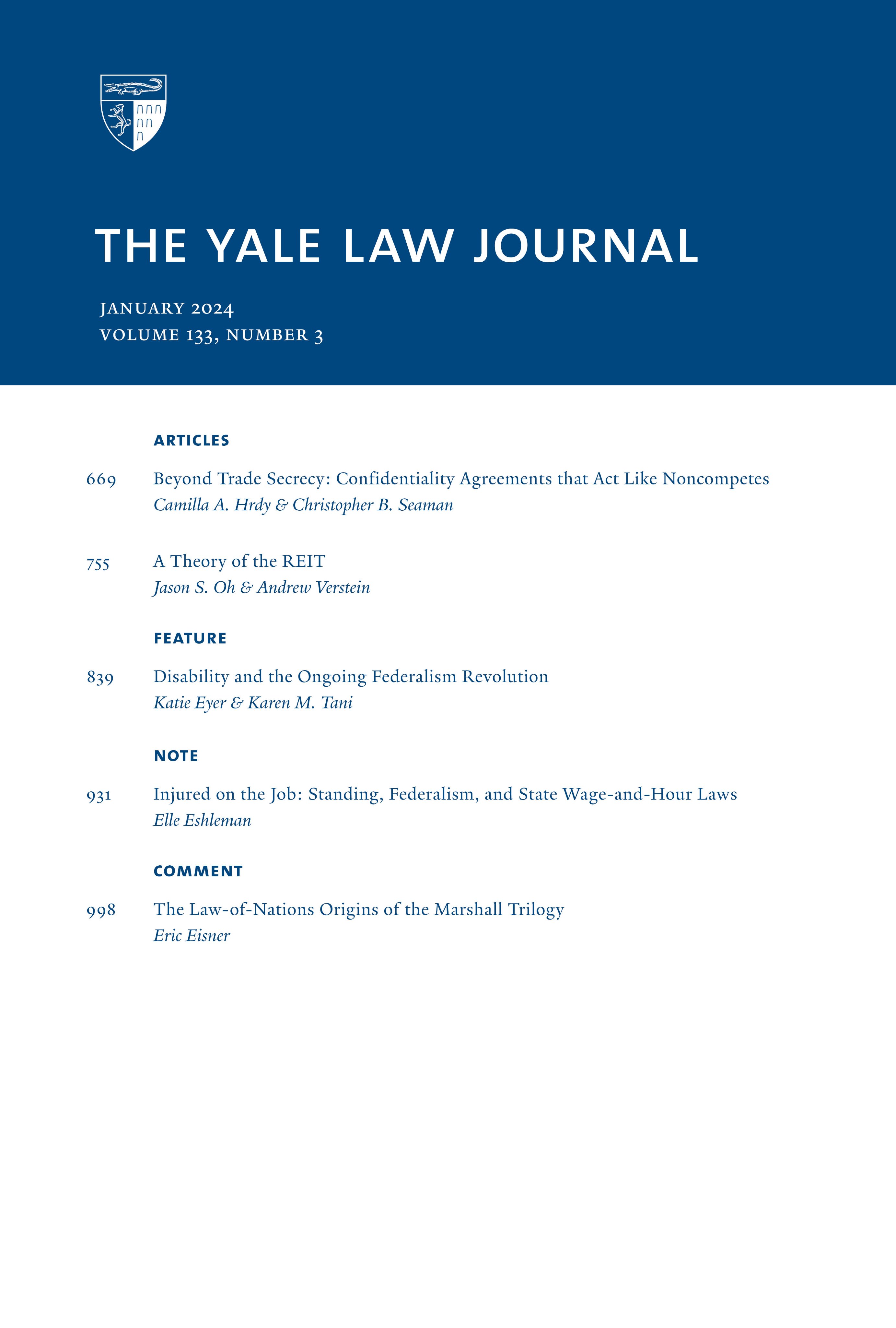理由、权力和权威
IF 5.2
1区 社会学
Q1 LAW
引用次数: 36
摘要
在过去的三十年里,正当防卫一直是刑法理论争论的主题。这场辩论的双方都假设,争论的问题是行为人的行为在道德上是否正当;他们只是对这个问题的看法不同。保罗·罗宾逊坚持认为,当行为防止的伤害大于造成的伤害时,行为在道德上是正当的,而乔治·弗莱彻和约翰·加德纳则坚持认为,行为人的行为理由也起着至关重要的作用。本文认为,正当辩论的双方一直在问错误的问题。对整个普通法世界的实际正当理由抗辩的审查清楚地表明,它们主要涉及被授权的个人授予行为人的特别许可(例如,治安法官授予对警察进行搜查的权力)。在某些情况下,决定允许这种行为的当局就是实施这种行为的人(例如,当一名警官决定允许进行无证逮捕或当一名父母决定允许对她的孩子使用武力时)。鉴于正当理由在刑法理论中明显发挥的作用,我们应该把注意力从对行为本身的评价转移到对当局允许其行为的决定的审查上来。在评估理由时,法院的工作类似于对行政决定的司法审查。我们应该问的是,这个决定是否合理,是否有正当的理由,而不是他们审议的结果是否正确。通过对正当性辩护的研究,我们开始看到刑法中的私人权威(如父母对孩子的支配)和公共权威(如治安法官的决定)共享一个共同的规范结构。本文的结论是,这一分析提出了一些关于政治合法性的新问题。本文章由计算机程序翻译,如有差异,请以英文原文为准。
Justifications, Powers and Authority
Justification defenses have been the subject of a protracted debate in criminal law theory for the past thirty years. Both sides in this debate have assumed that the question at issue is whether the actor's conduct is morally justified; they differ only in their views on this question. Whereas Paul Robinson has insisted that conduct is morally justified when it prevents greater harm than it causes, George Fletcher and John Gardner have insisted that the actor's reasons for action also play a crucial role. This article contends that both sides in the justifications debate have been asking the wrong question. An examination of actual justification defenses throughout the common law world makes clear that they are primarily concerned with the special permission conferred upon the actor by an authorized individual (e.g., a justice of the peace confers the authority to conduct a search on a police officer). In some cases, the authority deciding to permit the conduct is the very person who carries it out (as when a police officer decides that it is permissible to make a warrantless arrest or when a parent decides that it is permissible to use physical force against her child). Given the role that justifications clearly play in criminal law doctrine, it is appropriate to shift our attention from an evaluation of the conduct itself to a review of the authority's decision to permit it. A court's job, when evaluating justifications, is akin to the judicial review of an administrative decision. We should ask whether the decision was made reasonably and on the proper grounds, and not whether the outcome of their deliberation was correct, all things considered. Through this study of justification defenses, we begin to see that private authority in criminal law (such as parents over their children) and public authority (such as the decisions of a justice of the peace) share a common normative structure. This article concludes with a number of new questions of political legitimacy raised by this analysis.
求助全文
通过发布文献求助,成功后即可免费获取论文全文。
去求助
来源期刊

Yale Law Journal
LAW-
CiteScore
4.50
自引率
6.20%
发文量
0
期刊介绍:
The Yale Law Journal Online is the online companion to The Yale Law Journal. It replaces The Pocket Part, which was the first such companion to be published by a leading law review. YLJ Online will continue The Pocket Part"s mission of augmenting the scholarship printed in The Yale Law Journal by providing original Essays, legal commentaries, responses to articles printed in the Journal, podcast and iTunes University recordings of various pieces, and other works by both established and emerging academics and practitioners.
 求助内容:
求助内容: 应助结果提醒方式:
应助结果提醒方式:


